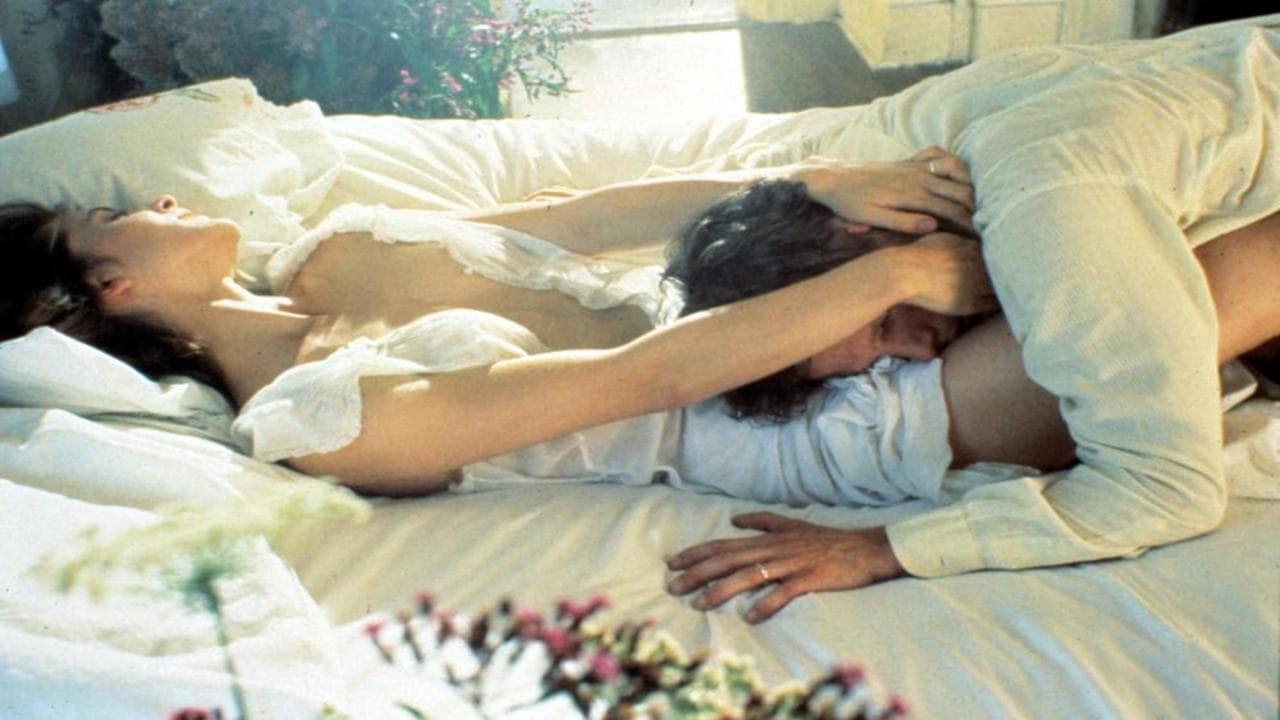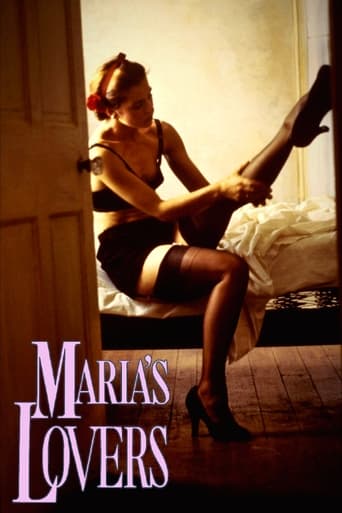SincereFinest
disgusting, overrated, pointless
CommentsXp
Best movie ever!
Fairaher
The film makes a home in your brain and the only cure is to see it again.
Rio Hayward
All of these films share one commonality, that being a kind of emotional center that humanizes a cast of monsters.
Wizard-8
The term "Cannon art film" may seem like a kind of oxymoron if you are familiar with the typical product producers Menahem Golan and Yoram Globus made when they ran the Cannon studio. But they did make a few dabs towards artistic productions, this being one of them. And there are some good things to say about this movie. Despite being a low budget movie, the period detail is pretty good, and so are the rest of the production values. The acting by everyone involved is also good, with Keith Carradine the actor who steals the show.Unfortunately, I could not get involved in the central story involving the Kinski and Savage characters, mainly because we are kept at a distance from them. We never really get to see what makes them tick inside their heads. Also, the movie is stretched out far too long (the running time is 109 minutes) - a somewhat shorter running time would have made the movie better.Don't get me wrong - this isn't a BAD movie. It never became boring, for one thing. But it does end up being somewhat of a disappointment.
davdecrane
Beautifully shot – almost too beautifully given the mundane storyline – and unevenly acted, the film deserves kudos for an intelligent rendering of an adult problem: the post-traumatic stress of a returning WW2 vet, and the miseries it puts him and his wife through.The dramatic thrust of the film – erroneously labeled European by some viewers – is hampered, not by its slow unfolding, but by passive characters. John Savage is sometimes strong and sometimes not in his portrayal, but he's been stymied by a script that has him only desultorily going after various goals. Maria, a far better if still uneven performance by Nastassja Kinski (whose talent is strong; the inconsistency is clearly the director's fault), also only gradually commits to her husband. That's fine and real but with only minor characters (Vincent Spano, Keith Caradine) strongly after an objective, the movie is moribund at its center for much of its running time. (Robert Mitchum's character and performance are both dismal.) The film gathers some tension once Nastassja is mit Kind, and Savage's predicament reaches the breaking point. The resolution is somewhat satisfying though not entirely credible (Savage feels more like a life-long alcoholic at this point) and comes about through his chance meeting with Caradine's philanderer. More literary than filmic in its construction, the movie's best feature is Nastassja's performance. But because her life, like her husband's, feels more acted upon than really lived, the movie just lumbers.
stevie_bebop
I haven't seen this since it came out but I still talk about it when discussing the nature of love. It deals well with an issue I believe many people can relate to: the fine line between love and hate. The whole point [I believe] of the movie is to illustrate how John Savage's inability to make love to his wife is because he loves her too purely and only once that innocent worship has been tarnished can he consummate his marriage and love his wife completely.If you've ever wondered why your best sexual memories are of people you didn't love then this movie is for you.
ipswich-2
A World War II soldier (Savage) returns to marry his old lover (Kinski) but his inability to father a child leads to the destruction of their marriage. The couple goes through a series of tribulations before coming together again. Savage gives a so-so performance as the tormented husband who loses the will to commit to the sanctity of the marriage bond. Kinski gives her most versatile and inspired performance ever as the anguished wife. If anything, watch her. The director, Andrei Konchalovsky, is actually Russian. The movie is a pastiche of styles from American and European film-making. Strong powerful storytelling through the chronology of time tinged with the emotional pathos that is typical of most European films. In the end, the mix is a bit jagged and mismatched, but this doesn't stray from an otherwise strong and moving movie.

